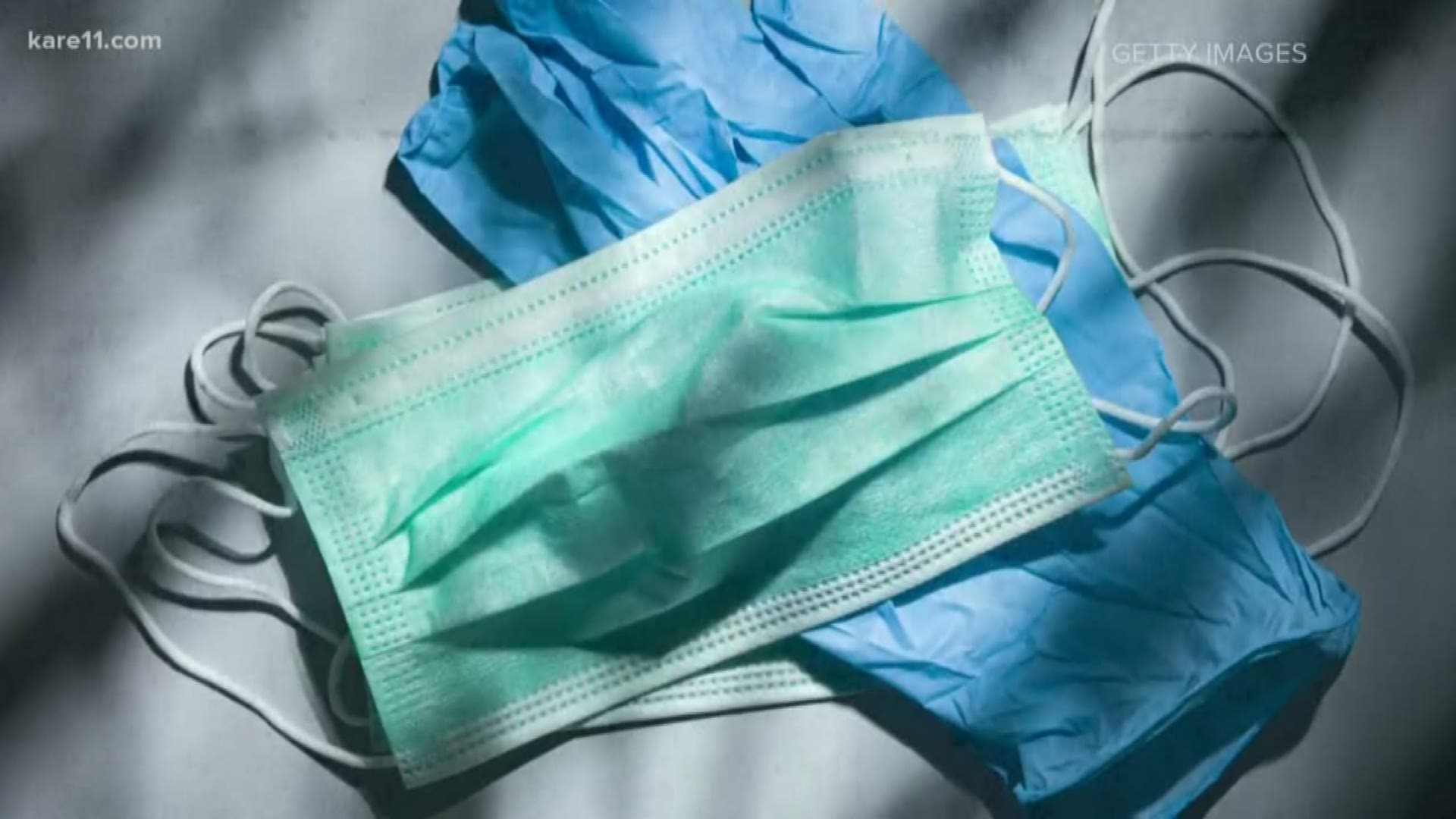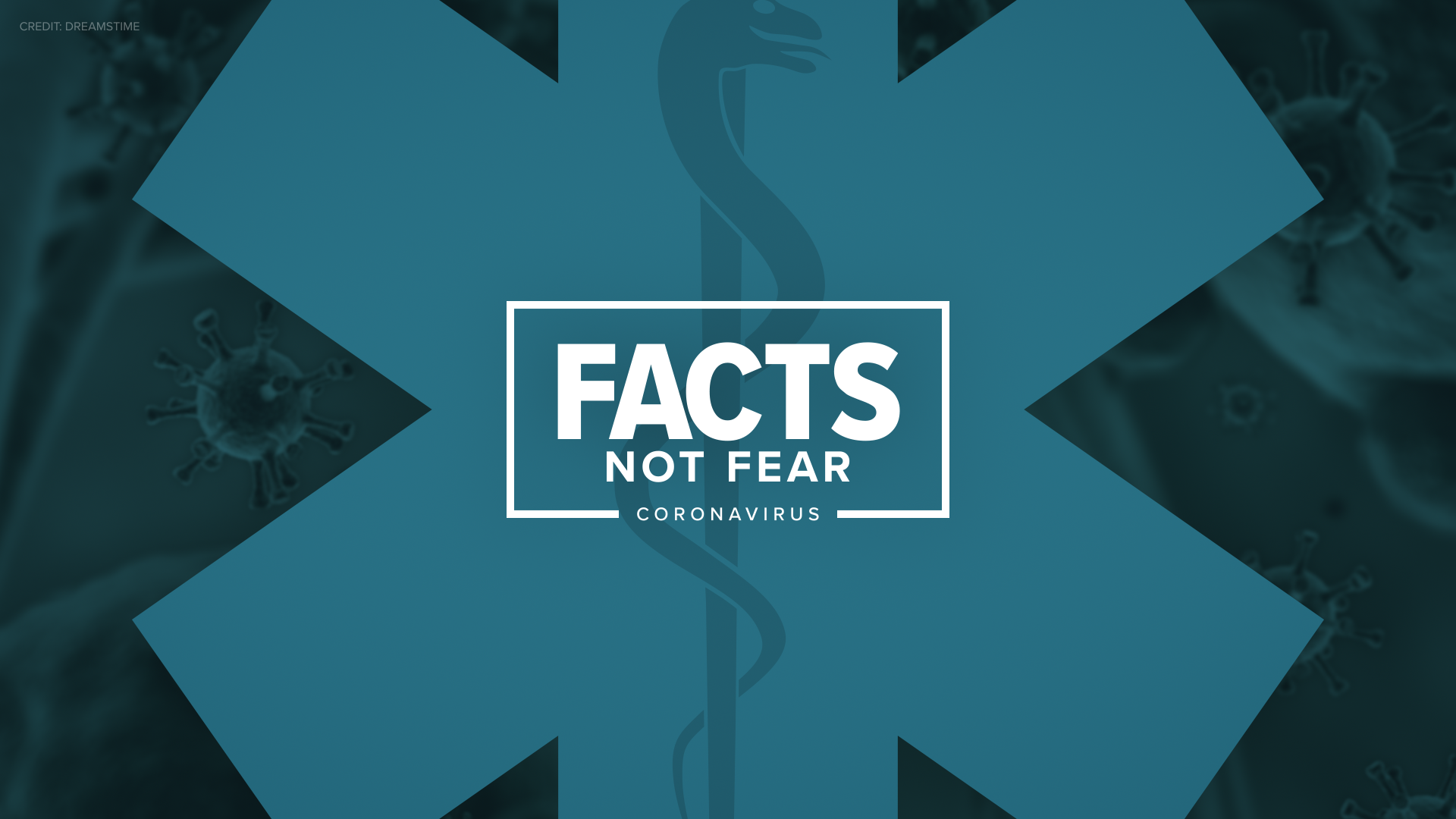MINNEAPOLIS — To mask or not to mask.
"Its going to become a super common thing that you see," said Natalie Ikeman, a Physician Assistant with Hennepin Health Care.
The CDC is reconsidering the original idea of only wearing a mask if you are sick or caring for someone who is, now that the agency is reporting 1 in 4 people who are infected show no signs of having the virus.
"They don't know they're sick but they're going out and they're giving it to others. If we can cover their nose, cover their mouth with a mask then we're gonna diminish the chance that they're going to cough droplets into the air and diminish the chance of spreading infection," said Dr. Tom Inglesby, Director of the John Hopkins Center for Health Security.
However, doctors warn while covering your face could potentially help stop the spread, studies are inconclusive about how much it protects you from actually catching the virus.
"Wearing a mask improperly can actually increase your risk of getting disease. It can also give you a false sense of security," said Surgeon General, Dr. Jerome Adams.
So lets say the CDC recommends masks be worn out in public which is best for Practice?
"The typical masks that we use in the clinics are the simple surgical masks and these also provide significant protection," said Ikeman.
Doctors say your other option is a homemade mask.
"When we talk about using an N95 versus a clinic grade or hospital grade mask versus a homemade mask if all you have access to is a homemade mask, that’s going to be better than nothing.”said Ikeman.
Its no secret healthcare workers are facing a mask shortage right now, but there's no need for an over purchasing of masks to commence health experts say.
"Hold off for a second lets see what their recommendations are and lets not create another toilet paper issue again," said Ikeman.
For more information on what the State Department of Health advises when it comes to homemade masks, click here.
KARE 11’s coverage of the coronavirus is rooted in Facts, not Fear. Visit kare11.com/coronavirus for comprehensive coverage, find out what you need to know about the Midwest specifically, learn more about the symptoms, and keep tabs on the cases around the world here. Have a question? Text it to us at 763-797-7215. And get the latest coronavirus updates sent right to your inbox every morning. Subscribe to the KARE 11 Sunrise newsletter here. Help local families in need: www.kare11.com/give11.
The state of Minnesota has set up a hotline for general questions about coronavirus at 651-201-3920 or 1-800-657-3903, available 7 a.m. to 7 p.m.
More information on the coronavirus:
- Facts not fear: What the Midwest should know about coronavirus
- Current number of presumptive coronavirus cases in Minnesota and Wisconsin
- Coronavirus-related cancellations, postponements and impacts in the Twin Cities
- Here are the common symptoms of coronavirus
- What are the 'underlying conditions' that make coronavirus more serious?


